What is a Boat Bill of Sale?

A boat bill of sale (also called a boat purchase agreement) is a document used to detail the terms of a transaction between a private seller and buyer. It’s a contract specific to a boat sale, and can be used for a powered or unpowered boat as long as it is not also a U.S. Coast Guard documented vessel registered by the U.S. government rather than titled and numbered by a state (there are separate forms for selling a documented vessel).
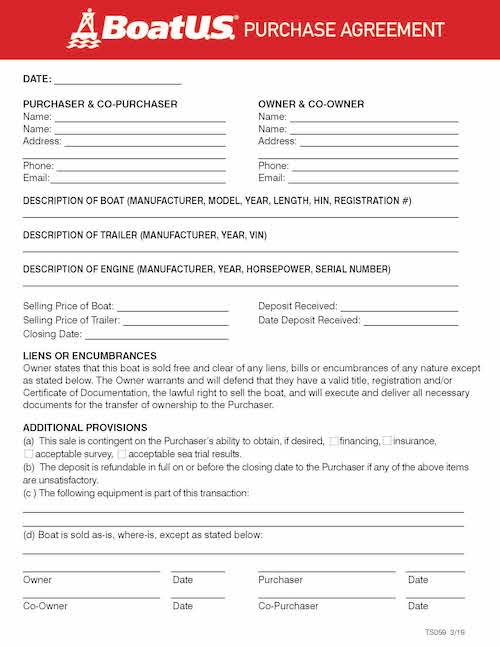
In some states, a boat bill of sale may not be required to complete the sale, but using one is a good idea as it provides proof of the details of the transaction. If the boat has a title—generally required in most states for boats more than 16 feet in length—that title will still need to be transferred from the seller to the buyer per state regulations.
How to Buy a Used Boat from a Private Seller

Boat Bill of Sale Templates Online
You can make up your own boat purchase agreement or use a form that may be provided by your state (try searching online for “Michigan boat purchase agreement” for example). If you find a form, details for your state will likely be included. Some states require the boat purchase agreement to be notarized by both buyer and seller.
If your state does not require the use of a specific form, or does not offer one, you may be able to use a generic boat purchase agreement such as one offered by:
- The U.S. Coast Guard
- A service like eForms
What Should Be Included on a Boat Purchase Agreement?
A boat bill of sale should include:
- The name, address and contact information for the buyer;
- The name, address and contact information for the seller;
- A description of the boat—brand, model, year of manufacture, length, Hull Identification Number (HIN);
- State registration number.
The HIN should be permanently marked on the boat transom to port. If the boat is powered by an outboard motor, it should be listed separately with its serial number.
If a trailer is being sold with the boat, it is also listed separately with its Vehicle Identification Number (VIN). The agreement should list a separate sale price for the boat, outboard motor and trailer. The agreement should also list any accessories or equipment being sold with the boat, such as electronics, trolling motor, spare props, with serial numbers if available. If you are selling the boat, items that are not included in the sale can be listed as “excluded” on the purchase agreement.
The boat purchase agreement can be executed before the sale is final, usually with a deposit, with contingencies, which could include securing financing or that the boat passes a mechanical inspection, marine survey , or sea trial . If issues crop up, such as a repair that should be made, those terms can be negotiated and spelled out in a new agreement, or the buyer can walk away with a refunded deposit.
Using a formal boat purchase agreement protects both the buyer and seller and goes a long way toward avoiding misunderstanding between the parties.
Read Next: How to Register a Boat
You May Also Like:
- Working with a Boat Dealer
- Why Should You Buy a Certified Boat?
- New or Used Boats: How to Decide
- Understanding Boat Values & Pricing
- Find the Right Boat for Your Lifestyle
Join Our Newsletter!
Get community news, buying bargains, and how-to guides at your fingertips.

Boat Bill of Sale
The boat bill of sale is a form that documents the sales transaction of a boat. It formally transfers ownership of the craft from one person to another. Sometimes called a boat purchase agreement, this document formalizes and details the terms of the transaction. It works like other forms of bills of sale. The boat bill of sale is specific to boats, both those with and without motors.
Boat Bill of Sale Template
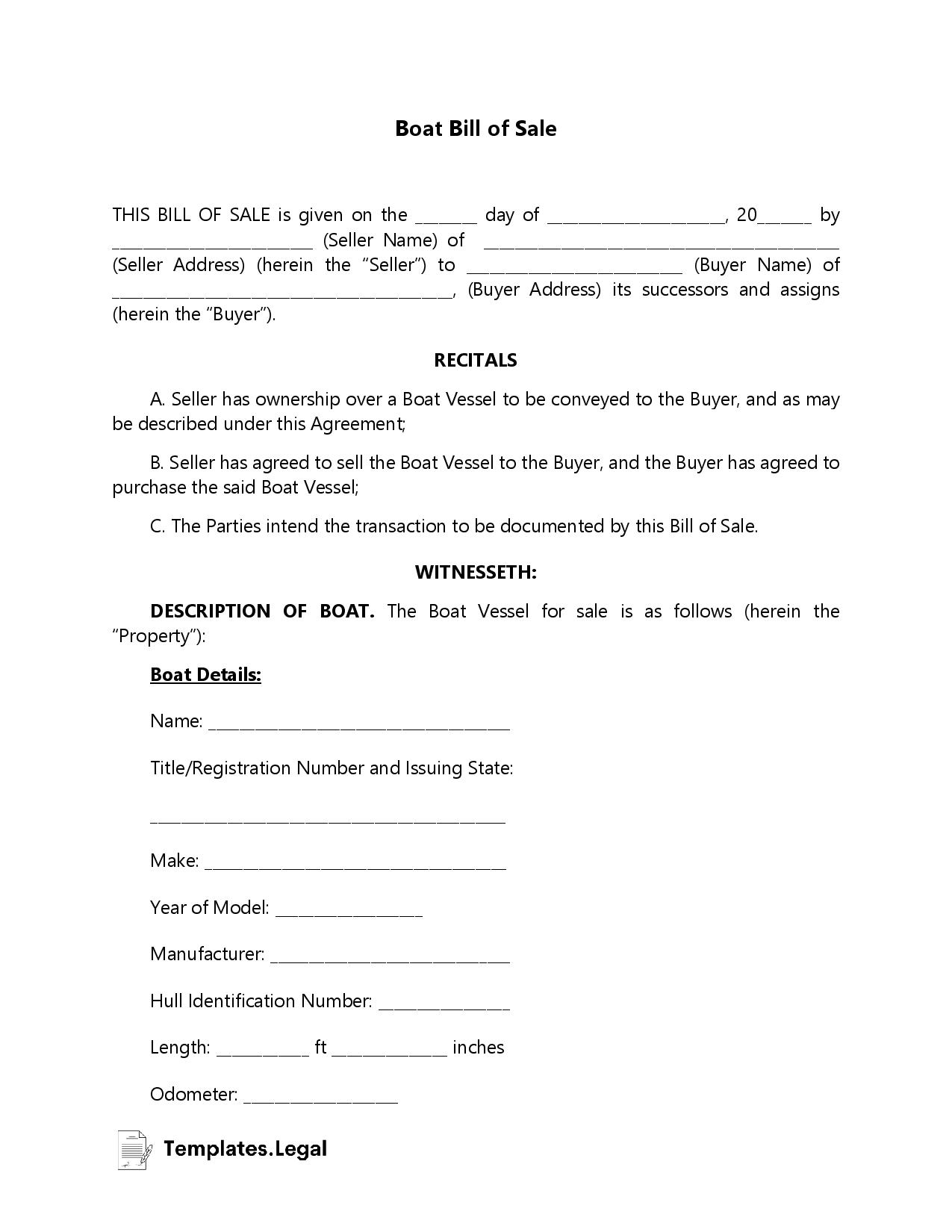
- Connecticut
- Massachusetts
- Mississippi
- New Hampshire
- North Carolina
- North Dakota
- Pennsylvania
- Rhode Island
- South Carolina
- South Dakota
- West Virginia
A private seller from a dealership will include a bill of sale for the boat. A private seller offering a used boat will need to find a boat bill of sale as well.
The boat bill of sale operates just like other bills of sale. A person buying a used car will receive a bill of sale. A bill of sale is used when a person buys an animal, like a horse. They are proof that the legal ownership of the item is moving from one person to another. It is the specifications that vary from each.
A boat bill of sale is quite similar to other vehicular bills of sale. It closely resembles the car bill of sale. The seller will need to note the same information.
- Personal information of the seller
- Personal details of the buyer
- Make and model
- Odometer/hours reading
- Year of manufacture
- Amount Paid
The boat bill of sale requires a few specific pieces of information. The seller must include the
- length of the boat
- hull identification number.
- state registration number
The boat must be either state or federally registered, but not both. Different states require different components, but all states require that the boat gets registered with the state. Not all boats need to be registered. Kayaks, canoes, and other human-propelled boats do not need to be registered and therefore do not require a bill of sale. The boat bill of sale is for all boat sales or any major money transaction.
The bill of sale acts as a transfer of ownership. A bill of sale for a boat should be used in every state. In some states, the bill of sale needs to be notarized. Florida is a state that requires a notary while Washington does not, unless by mail. Research the state-specific requirements for the boat bill of sale.
Drafting a Boat Bill of Sale
Those in need of a boat bill of sale have two options. The easiest option is to download a free boat bill of sale online. The second option is to draft one. For the most part, all boat bills of sale follow the same guidelines.
A free, printable boat bill of sale is available online for every state. These templates have all the specific information details required by the state.
Where to Find a Free Boat Bill of Sale
The ideal place to get and use a free boat bill of sale is from a government website. The DMV provides boat bill of sale templates for free. State-specific bills of sale are preferred as they have all their particular information listed. These are found easily by searching the Internet for “boat bill of sale + state”
Drafting a boat bill of sale is an option when selling a boat that does not need to be registered. The government-provided templates have sections that are not necessary for these transactions.
Some information can be omitted when selling boats like canoes and kayaks if the seller is drafting their bill of sale. Examples of unnecessary information are the hull identification number, registration number, year, and length.
Boat Bill of Sale Breakdown
A bill of sale should only begin after the terms of the transactions have been agreed upon. Once the seller has found a buyer and agreed on a price, they can choose which boat bill of sale they will use. A free online template or drafting their own.
Even before securing payment, a seller can begin filling out a bill of sale by using a deposit. A deposit can provide peace of mind for both buyer and seller. The boat may need to get inspected for repairs before full payment. The bill of sale can start to be drafted at this point.
Seller Information
A boat bill of sale starts with the personal information of the seller. The seller will include their name, address, and contact information. Contact information will be either email or phone number, often both.
Buyer Information
This section is filled out by the individual purchasing the boat. It includes all the same information that the seller fills out.
Boat Information
The seller fills out the necessary boat information. This section is the specifications of the boat.
Brand, Model, Make
This section may vary depending on the template. The language is what will be different, but the idea is the same. All boat bills of sale will require this information.
Include the company that manufactures the vessel and the model. Sometimes, the type of boat will be required. Indicate if the boat is a dingy, fishing boat, catamaran, etc.
In addition, include the year of the manufacture.
The length is a requirement specific to the boat bill of sale. Boats are measured lengthwise, tip-to-tip.
Hull Identification Number
All boats manufactured in the U.S come with a hull identification number (HIN). The number is at the stern. They are all a twelve-character identification.
The ID number has three components.
- a three-letter manufacturer number
- Five characters serial number
- Month and year of production
The HIN is full of information for the boat bill of sale. This includes the manufacturer and year of production.
Registration Number
The state or federal government registers all boats.
State registration numbers are located on either side of the boat. They take the form of the first two letters indicating the state, four numbers, and two letters.
Federal registration numbers are located around the boat. They are on parts of the boat visible when it is in the water.
If not found, call the state with the HID.
Indicate the agreed-upon price of the boat.
Sometimes, there is a section to indicate a deposit. The deposit is part of the overall final price.
Date and Signature
The boat bill of sale is complete once the document is dated and signed.
If the boat is sold with a motor, it needs to be on the bill of sale. The information is less comprehensive than the boat. The price can be indicated separately or included in the final price as an addition.
The motor has four pieces of information required.
- Manufacturer
- Serial Number
All this information is on the engine.
If a trailer is sold with the boat, it needs a separate section. The state does not require a separate bill of sale for the trailer. The trailer needs its section for the price. It is not to be included in the price of the boat.
There are three necessary pieces of information needed for the trailer.
- Vehicle Identification Number
Some free bills of sale for boats have additional pieces of information required for a trailer. The weight and license plate, for example.
No. The boat bill of sale is the prerequisite for obtaining the title. A title for the boat is the certification of ownership as seen by the government. The boat bill of sale is proof of transfer and must be signed before a title is given.
The title is not required in all states. The title is to prove legal possession of the boat in the event of theft.
A state may require the boat to be titled depending on the size, horsepower, or type of boat. No matter the reason, the boat bill of sale is required to title.
Some equipment needs to be specified on the boat bill of sale. Trailers and motors need their section if they are part of the transaction.
Electronics, spare props, and recreational equipment, if part of the deal, do not need sections on the bill of sale.
Some templates have subsections where the seller can list any additional equipment that is part of the transaction. This is where the seller can list out whatever small equipment is included. It is not technically required. A boat bill of sale drafted from scratch should include a section for additional equipment.
Some states require the boat bill of sale to be notarized. If this is the case, there are two options. The seller can visit an institution like a bank, law firm, or notary public. Physically delivering the bill of sale is more effort, but often less expensive.
The easier option is a digital signature. There are websites online that provide digital signatures for digital documents. These are more expensive than a public notary, but only require the seller to send the signed boat bill of sale digitally.
- Skip to primary navigation
- Skip to main content
- Skip to primary sidebar
- Skip to footer
Legal Templates
Home Personal & Family Bill of Sale Boat
Boat (Vessel) Bill of Sale Template
Use our boat bill of sale to record the sale of a boat and protect both the buyer and seller.
- 4.8 531 Ratings

Updated November 22, 2023 Written by Sara Hostelley | Reviewed by Brooke Davis
A boat bill of sale is a legal document recording the sale of a boat between two parties: a seller and a buyer. Within this document, the seller agrees to transfer boat ownership to the buyer for a certain fee.
Supplemental Form
If the boat has an accompanying trailer, you can record the sale of multiple items (for example, a boat, motor, and trailer) on a single form or an accompanying trailer bill of sale form .
Boat Bill of Sale – By State
- Connecticut
- District of Columbia
- Massachusetts
- Mississippi
- New Hampshire
- North Carolina
- North Dakota
- Pennsylvania
- Rhode Island
- South Carolina
- South Dakota
- West Virginia
Boat Bill of Sale – By Type
Explore our different forms to get the right template for your boat setup:

Use this template if you’re selling a motorless boat or a boat with an internal motor.
Examples include canoes, sailboats, houseboats, and jet skis.

Use this template for a motorless or inboard-motor boat and its trailer.
For a Boat and Trailer

Use this template to sell a boat with an outboard motor and its trailer.
Outboard motors aren’t permanent parts of the boat, so they must be listed separately on the bill of sale form, even if a trailer isn’t included in the transaction.
For a Boat, Motor, and Trailer

If your boat is federally documented (registered with the U.S. Coast Guard), you need an official Coast Guard bill of sale to complete the transfer.
For a Coast Guard Vessel
- Boat Bill of Sale - By State
- Boat Bill of Sale - By Type
What Is a Boat Bill of Sale?
What to include in a boat bill of sale, how to sell a boat, how to write a boat bill of sale, boat bill of sale sample, frequently asked questions.
A boat bill of sale is a document that legally transfers the ownership of a boat or other watercraft from a seller to a buyer.
You need this form when buying or selling a boat because it outlines the terms of the sale, prevents disputes, and serves as proof of ownership for the buyer so they can register their new boat.
Types of Boats
You may sell or buy one of the following types of boats:
- Power/motorboat
A valid bill of sale for a boat, jet ski, or other watercraft vessels should include the following components:
- Parties’ information: The buyer’s and seller’s names and contact information.
- Watercraft description: Details about the watercraft, including its current condition, hull identification number, make, model, and year.
- Registration information and title number: Any registration information and title numbers for the boat.
- Payment method: Clarification on how the buyer will pay (via cash, personal or certified check, credit card, etc.)
- Purchase price: The agreed-upon purchase price.
- Sale location and date: When and where the sale occurred.
- Signatures: Signatures of both parties.
- Notarization: Some states require notarization to validate the document. Even if your jurisdiction doesn’t require notarization, you may consider having a notary witness both parties’ signatures to increase its legitimacy.
You can also specify if the boat comes with a warranty. If it doesn’t, you may include an “as-is” clause, meaning the buyer agrees to purchase the vessel in its current condition.
When it comes to selling a boat, there are several steps you need to take to keep in mind to make the process as straightforward as possible.

Step 1 – Decide What You’re Selling
Firstly, you’ll need to decide what you’re selling. Will you sell just a boat or include a motor and/or trailer?
Whatever it is you’re selling, make sure you include everything in the final value of the sales price.
Step 2 – Prepare the Boat for Sale
You need to take a few steps to prepare your boat for sale. You’ll need to:
- Get paperwork in order: Ensure you have the title and registration for each component. Most states require this information for sale, plus it assures the buyer that you’re the owner and the vessel has no liens.
- Collect maintenance records: A potential buyer may ask for records of any maintenance work you’ve had for the boat to verify its condition.
- Clean your vessel: Clean your vessel’s interior and exterior to attract more potential buyers. Address cosmetic issues, fix mechanical problems, and remove everything not part of the sale.
- Photograph your boat: Take several photos of your boat from different angles in good lighting.
Step 3 – Determine Your Boat’s Value
To determine your boat’s value, you’ll need to:
- Decide whether to sell privately or commercially. You may wish to hire a broker to help sell your boat, especially if it’s a higher-cost watercraft. On the other hand, selling your boat on your own lets you manage the process while eliminating fees and commission costs, but it can be more time-consuming.
- Determine market value. To get an idea of the market value of your boat, you can use a price-checker tool like J.D. Power or BoatTrader . Or, you can search for local listings of a similar make and model. Factors such as condition, age, and demand can significantly impact market value.
A vessel’s average sales price may not accurately represent how much your boat is worth. If you’ve made extensive modifications, they could affect the value. Ensure you consider everything when calculating the sales price.
Decide on an asking price and the lowest offer you’ll consider before you list.
Step 4 – List Your Boat for Sale
Several websites help private boat sellers reach buyers. Create multiple listings across sites like Boat Trader , The Hull Truth , BoatCrazy , boats.com , Craigslist , and eBay to reach a wider audience. For high-end and specialty boats like yachts and sailboats, try YachtWorld.
In addition to several clear photos of your boat, provide a detailed description of the condition and features of the vessel and any accompanying motor, trailer, or accessories.
Make sure you include the following information in your post:
- Make, model, and year
- Repairs or improvements
- Terms of the sale (cash-only, delivery available, etc.)
If you want to offer a warranty on the boat, mention it here. Otherwise, include terms like “as-is” or “sale final” in the listing description.
Step 5 – Present Your Boat to Potential Buyers
Now that you’ve listed your boat for sale online, you can show it to potential buyers. For ease, you’ll want your boat stationed at a dock for easy access so buyers can understand what the boat is like on the water. You could also consider parking your boat on land, a trailer, or a stand.
Before meeting potential buyers, ensure the following:
- You’re honest and up-front about the boat.
- You know the boat inside and out.
- The boat is in selling condition.
- You’re prepared to communicate and negotiate with buyers.
- You know your lowest asking price.
Step 6 – Write a Bill of Sale and Gather Relevant Documents
Once you’ve found a buyer, you can fill out a bill of sale template to finalize the transaction. Distribute a copy to the buyer so they can review it.
Also, gather the following documents:
- Title: Proof you own the boat.
- Registration: Current registration in your state.
- Proof of Paid Loan: Evidence that you’ve paid off the loan attached to the boat.
- Trailer Documentation: Proof the trailer is in good condition and can haul a boat without it being dangerous.
- Receipts for Maintenance/Repairs: Proof of you taking care of the boat while you owned it.
- Warranties: Any guarantees you want to transfer in the sale.
Step 7 – Collect Payment
Once you agree on a price with the buyer, you can finalize the boat sale. The buyer must pay you before signing the document.
Don’t hand over the keys or ownership documents until the buyer’s funds have cleared.
It would be best to negotiate which party will be subject to the sales tax; typically, both parties split it. To close the sale:
- The buyer needs to make payment in full.
- The seller must sign the title to the buyer and hand over any current registration documents.
Step 8 – Sign and Notarize
After completing the bill of sale form and receiving payment in full, you and the buyer can sign the document according to your state’s requirements.
Some states require the buyer and seller to sign in the presence of a notary public for the form to be valid. If your state doesn’t require boat bills of sale to be notarized, it’s still a good idea to have a notary witness the deal in case a dispute arises.
After the sale is complete, make a copy of the signed form for your records. The buyer should keep the original copy for registration purposes.
Step 1 – Fill in the Buyer and Seller Information
Once the buyer and seller agree on all the transaction details, arrange to meet in person to complete the sale. It’s a good idea to have both parties show ID to verify their personal information is correct and prevent fraud.
You must include both parties’ names, addresses, and contact details.

Step 2 – Fill in the Boat, Motor, and Trailer Details
Fill out the boat details, including year, make, model, HIN (hull identification number), dimensions, etc. You can usually find your boat’s hull ID number on the right side of the transom (rear of the boat).
Include outboard motor information like serial number, model, and horsepower, which you can often find on the plate attached to the motor.
You can find trailer details like the vehicle identification number (VIN) and weight on a sticker or plaque, usually attached to the frame.
You can use the notes section to mention additional details about the condition of these components. Include whether you will have any warranties to the buyer or if they will buy the boat “as is.”

Step 3 – Fill in the Selling Price and Payment Method
Before meeting to complete the sale, the buyer and seller should agree on a purchase price and payment method.
The buyer must pay sales tax when registering their new boat, but you might split or cover the sales tax cost by deducting the applicable taxes from the selling price.
Payment methods can include the following:
- Personal check
- Cashier’s check
- Money order
- Credit Card
If the boat is a gift, fill out your relationship to the recipient and the boat’s total value and other items included in the transfer.

Step 4 – Sign and Notarize
Once the buyer pays, you can sign the form to finalize the transaction. Some states require boat bills of sale to be notarized.

Download a boat bill of sale template below in PDF or Word format.

Can you register a boat with a bill of sale?
You can use this document as proof of purchase to apply for the legal title with the state agency that handles boat registration.
Check your state’s requirements to determine if you need to register the boat. If you’re purchasing a trailer, you may need to register that too.
Can I buy a boat with just a bill of sale?
Yes, you can buy a boat with just this document. However, the boat must not have a title. The bill of sale must provide all the necessary details so there’s sufficient proof the transaction took place.
If a title is attached to the boat, the seller must transfer the title to you for you to legally be the new owner.
Can you sell a boat without a bill of sale?
Yes, you can sell a boat without this document. However, this approach may not be wise because you wouldn’t have definitive proof of a transaction and the resulting change in ownership. Both parties to the sale may experience legal ramifications later.
For example, say you sold your boat to a buyer without a bill of sale, and the buyer got into an accident where they damaged another vessel. The owner of the damaged vessel could take you, the original owner, to court for compensation.
As the boat is still in your name and there is no proof of a transaction, it won’t be easy to prove your innocence.
Does a boat bill of sale need to be notarized?
A boat bill of sale may need to be notarized to be legally binding, depending on the state where the sale occurs. Many states require this document notarized or witnessed by at least two people.
- Legal Resources
- Partner With Us
- Terms of Use
- Privacy Policy
- Do Not Sell My Personal Information

The document above is a sample. Please note that the language you see here may change depending on your answers to the document questionnaire.
Thank you for downloading!
How would you rate your free template?
Click on a star to rate

Boat Purchase Agreement
Jump to section.
A boat purchase agreement is a legally binding contract between two parties that establishes the terms and conditions governing the sale and purchase of a boat. This agreement is imperative to ensure a smooth and secure transaction for both parties involved in the boat sale. Let us know about the important aspects of the agreement below.
Essential Elements of a Boat Purchase Agreement
The boat purchase agreement typically includes elements, such as:
- Identifying the Parties: The agreement identifies the buyer and seller by their full legal names and contact information.
- Describing the Boat: The agreement provides a detailed description of the boat being sold, including its make, model, year, hull identification number (HIN), and any additional equipment or accessories included in the sale.
- Specifying Purchase Price and Payment Terms: The agreement specifies the agreed-upon purchase price for the boat and outlines the payment terms, including the payment schedule, accepted forms of payment, and any deposit or down payment requirements.
- Stating Conditions and Warranties: The agreement may include provisions regarding the boat's condition and any warranties provided by the seller. It may specify whether the boat is being sold "as is" or with specific warranties, outlining the buyer's rights and responsibilities in case of defects or issues discovered after the purchase.
- Addressing Title and Transfer of Ownership: The agreement addresses the transfer of ownership and title of the boat. It may outline the process for transferring the title and registration, including any necessary paperwork or documentation required by the relevant authorities.
- Including Inspections and Surveys: The agreement may include provisions allowing the buyer to conduct inspections, surveys, or sea trials to assess the boat's condition and verify its compliance with the agreed-upon specifications.
- Outlining Closing and Delivery: The agreement outlines the closing date and location of the transaction, as well as the responsibilities of each party regarding the delivery of the boat, including any costs or arrangements related to transportation.
- Stating Governing Law : The agreement may include provisions specifying the jurisdiction or governing law that will govern any disputes arising from the agreement and outline the preferred method of dispute resolution.
Key Functions of a Boat Purchase Agreement
A boat purchase agreement establishes a legally binding contract governing a boat's sale and purchase. It serves several important functions:
- Defining Terms and Conditions: The agreement clearly outlines the terms and conditions agreed upon by the buyer and seller, including the purchase price, payment terms, and any additional agreements related to the transaction. It ensures that both parties have a mutual understanding of their rights, obligations, and responsibilities.
- Establishing Legal Ownership: The agreement facilitates the transfer of legal ownership from the seller to the buyer. It provides documentation demonstrating the buyer's ownership rights and protects them from future claims or disputes regarding the boat's ownership.
- Protecting the Rights of Parties: The agreement includes provisions that protect the interests and rights of both the buyer and the seller. It may outline warranties the seller provides regarding the boat's condition and history and any representations or disclosures made about the boat. This helps prevent misunderstandings and provides recourse for the parties in case of breaches or issues.
- Clarifying the Boat's Condition: The agreement may include details about the boat's current condition, any inspections or surveys conducted, and disclosures made by the seller. This ensures that the buyer is aware of the boat's condition before completing the purchase and helps avoid disputes arising from undisclosed defects or issues.
- Ensuring Compliance with Applicable Laws: The agreement may address legal requirements, such as the transfer of title, registration, and applicable regulations or laws governing boat sales. It helps ensure the transaction follows relevant legal frameworks and protects both parties from potential legal complications.
- Providing Documentation: The boat purchase agreement is an important legal document that provides proof of the agreed-upon terms and conditions of the sale. It can be used as evidence in disputes, insurance claims, or other legal matters related to the boat purchase.
Nicholas M.
Benefits of Entering a Boat Purchase Agreement
A boat purchase agreement offers several benefits to both the buyer and the seller involved in a boat sale. Here are some key benefits:
- Provides Legal Protection: The agreement provides legal protection to both parties by clearly defining the terms and conditions of the boat sale. It helps prevent misunderstandings and disputes by outlining each party's rights, obligations, and responsibilities.
- Ensures Clarity and Understanding: The agreement ensures that both the buyer and the seller clearly understand the agreed-upon terms of the sale. It specifies important details such as the purchase price, payment terms, boat condition, warranties, and any additional agreements, leaving no room for ambiguity or confusion.
- Mitigates Risk: The agreement allows for identifying and allocating risks associated with the boat sale. It may include provisions regarding inspections, surveys, or disclosures, which help the buyer assess the boat's condition and minimize the risk of unexpected issues or defects.
- Serves as Proof of Ownership: The agreement is proof of ownership transfer from the seller to the buyer. It provides documentation that establishes the buyer's legal rights to the boat and can be used for registration, insurance, or any future transactions involving the vessel.
- Resolves Disputes: In the event of a dispute, the boat purchase agreement provides a framework for resolving conflicts. It may include provisions for mediation, arbitration, or other alternative dispute resolution methods, reducing the need for costly and time-consuming litigation.
- Aids in Legal Compliance: The agreement ensures that the boat sale complies with applicable laws, regulations, and registration requirements. It helps both parties fulfill their legal obligations, such as transferring the title and registration, and protects against potential legal issues or liabilities.
- Provides Confidence and Peace of Mind: Having a well-drafted boat purchase agreement in place gives the buyer and the seller confidence and peace of mind. They can proceed with the transaction knowing that their rights are protected, the terms are clear, and a legally binding contract governs the sale.
Key Terms for Boat Purchase Agreements
- Purchase Price: The agreed-upon amount the buyer will pay the seller for the boat.
- Boat Description: A detailed description of the boat, including its make, model, year, HIN, and any additional equipment or accessories included in the sale.
- Title Transfer: The process by which the seller transfers legal ownership and title of the boat to the buyer.
- Condition and Warranties: The condition of the boat at the time of sale and any warranties or guarantees the seller provides regarding its condition or performance.
- Dispute Resolution: The agreed-upon method for resolving disputes, such as through mediation, arbitration, or litigation, in case of conflicts arising from the agreement.
Final Thoughts on Boat Purchase Agreements
A boat purchase agreement ensures a smooth and secure boat transaction for both the buyer and the seller. By clearly outlining the terms and conditions of the sale and addressing aspects such as purchase price, boat description, title transfer, condition, warranties, and dispute resolution, this legally binding contract provides both parties clarity, protection, and peace of mind. Whether buying or selling a boat, having a well-drafted boat purchase agreement is essential to mitigate risks, establish clear expectations, and facilitate a successful boat purchase experience. It is advisable to consult with a qualified maritime attorney to ensure that the agreement adequately addresses the unique aspects and requirements of the boat sale.
If you want free pricing proposals from vetted lawyers that are 60% less than typical law firms, click here to get started. By comparing multiple proposals for free, you can save the time and stress of finding a quality lawyer for your business needs.
ContractsCounsel is not a law firm, and this post should not be considered and does not contain legal advice. To ensure the information and advice in this post are correct, sufficient, and appropriate for your situation, please consult a licensed attorney. Also, using or accessing ContractsCounsel's site does not create an attorney-client relationship between you and ContractsCounsel.

Need help with a Boat Purchase Agreement?
Meet some of our boat purchase agreement lawyers.
Jonathan G.
Small Business Attorney licensed in Texas and Colorado. Based in Dallas, appointments available in DFW area.
General practice attorney with experience in civil litigation, family law, criminal law, estate planning, business formation, real estate and business transactions.
Terry Brennan is an experienced corporate, intellectual property and emerging company transactions attorney who has been a partner at two national Wall Street law firms and a trusted corporate counsel. He focuses on providing practical, cost-efficient and creative legal advice to entrepreneurs, established enterprises and investors for business, corporate finance, intellectual property and technology transactions. As a partner at prominent law firms, Terry's work centered around financing, mergers and acquisitions, joint ventures, securities transactions, outsourcing and structuring of business entities to protect, license, finance and commercialize technology, manufacturing, digital media, intellectual property, entertainment and financial assets. As the General Counsel of IBAX Healthcare Systems, Terry was responsible for all legal and related business matters including health information systems licensing agreements, merger and acquisitions, product development and regulatory issues, contract administration, and litigation. Terry is a graduate of the Georgetown University Law Center, where he was an Editor of the law review. He is active in a number of economic development, entrepreneurial accelerators, veterans and civic organizations in Florida and New York.
I am a startup veteran with a demonstrated history of execution with companies from formation through growth stage and acquisition. A collaborative and data-driven manager, I love to build and lead successful teams, and enjoy working full-stack across all aspects of the business.
Elbert Thomas is the founder of the Thomas Law Group, LLC. Elbert is proficient in contract creation, drafting, reviewing, and negotiating various business contracts and demand letters in industries such as construction, personal, professional services, non-profits, and real estate. Elbert typically represents small and large companies in drafting and negotiating countless agreements such as purchase sale agreements, interconnection agreements, lease agreements, demand letters, cease & desist letters, transfer of deeds in real property, and merger/acquisition agreements. In addition, Elbert is also experienced in start-ups, small business formation, drafting operating agreements, and estate planning.
Jonathan K.
Pico & Kooker provides hands on legal advice in structuring, drafting, negotiating, interpreting, managing and enforcing complex high value commercial transactions. Adept at navigating complex environments, Jonathan has extensive expertise advising clients on a wide range of long- and medium-term cross border and financial engagements, including public tender participation, PPPs, export sales agreements as well as policy and regulatory formulation. Jonathan and his co-founder, Eva Pico have represented and acted on behalf of lenders, global corporations and other market participants across a range of industries including financial services, infrastructure and transportation. As outside counsel, Pico & Kooker, has developed a strong rapport and working relationship with their clients and appropriately work with their in-house teams to increase consistency, processes and procedures. The company employs a unique approach as practical, business minded outside legal counsel who believe in proactively partnering with their clients to achieve desired results while managing and engaging key stakeholders. They listen to their clients to develop customized solutions that best meet their needs while aligning with their objectives, vision and values. Some representative transactions include advising the World Bank on project finance and portfolio options to address the costs and risks associated with integrating renewable power sources. Also advising them as legal counsel, Jonathan developed policies, regulation and models for emerging market governments entering into public-private partnerships. In addition to his work with the World Bank, Jonathan has worked with some of the world’s largest consulting firms, financial institutions and governmental organizations, including the United Nations, the governments of the US, UK and select African countries. Through out his career, he has worked with large, multinational corporations both by consulting in-house and acting as outside counsel on large cross-border transactions. He graduated from Georgetown University’s law school and was admitted practice as a lawyer in New York, England and Wales and, as a foreign lawyer, in Germany. He has written several articles for trade journals and has been cited by several business publications in worldwide. Jonathan is a native English speaker and has high proficiency in German and a functional understanding of Spanish.
I am a solo practitioner and the founding attorney at Uzay Law, PLLC, where I provide legal services in family-based immigration, citizenship, and naturalization. In the past, I also advised clients on employment-based immigration, contract, and business matters. I am licensed to practice law in Texas. Before practicing law, I worked as a producer and film consultant in New York for almost two decades. I am fluent in English and Turkish.
Find the best lawyer for your project

Quick, user friendly and one of the better ways I've come across to get ahold of lawyers willing to take new clients.
Business lawyers by top cities
- Austin Business Lawyers
- Boston Business Lawyers
- Chicago Business Lawyers
- Dallas Business Lawyers
- Denver Business Lawyers
- Houston Business Lawyers
- Los Angeles Business Lawyers
- New York Business Lawyers
- Phoenix Business Lawyers
- San Diego Business Lawyers
- Tampa Business Lawyers
Boat Purchase Agreement lawyers by city
- Austin Boat Purchase Agreement Lawyers
- Boston Boat Purchase Agreement Lawyers
- Chicago Boat Purchase Agreement Lawyers
- Dallas Boat Purchase Agreement Lawyers
- Denver Boat Purchase Agreement Lawyers
- Houston Boat Purchase Agreement Lawyers
- Los Angeles Boat Purchase Agreement Lawyers
- New York Boat Purchase Agreement Lawyers
- Phoenix Boat Purchase Agreement Lawyers
- San Diego Boat Purchase Agreement Lawyers
- Tampa Boat Purchase Agreement Lawyers
ContractsCounsel User
Review contract for intent to purchase a house
Location: maryland, turnaround: less than a week, service: contract review, doc type: purchase agreement, page count: 17, number of bids: 5, bid range: $400 - $695, create vehicle sales agreement, location: colorado, service: drafting, number of bids: 2, bid range: $400 - $650, want to speak to someone.
Get in touch below and we will schedule a time to connect!
Find lawyers and attorneys by city
BOAT SALE AGREEMENT

Published on
Dec 7, 2023
Introduction
A boat sale agreement is a legal document that transfers ownership of a boat from one person to another. The agreement typically includes the boat’s specifications, sales price, payment terms, delivery date, and warranties. It is important to read the agreement carefully before signing to understand the terms and conditions of the sale.
THIS AGREEMENT is made on [Insert Date],
- [Seller’s Full Name], a company incorporated and registered in [Insert Country of Incorporation] with company number [Insert Company Number] and having its registered office at [Insert Registered Address] (the “Seller”),
- [Buyer’sName], an invidiual at [Insert Registered Address] (the “Buyer”).
This Agreement is for the sale of an existing boat from the Seller to the Buyer. It sets forth the terms for the sale, payment, and delivery of the boat, ensuring a clear understanding and agreement between both parties.
BOAT AND ENGINE DESCRIPTION AND SPECIFICATIONS
1- The Seller warrants that the boat and engine meet the following specifications:
Brand of boat: [Brand]
Model of boat: [Model]
Year of boat: [Year]
Hull Identification Number (HIN): [HIN]
Brand of engine: [Brand]
Model of engine: [Model]
Power of engine: [Power]
2- If the boat and engine are found not to meet these specifications, the Seller will either refund the purchase price to the Buyer or repair the boat.
3- The Seller agrees to sell, and the Buyer agrees to buy the boat described as [Model and Design], with the Hull Identification Number (HIN) [Insert HIN] and detailed engine specifications as provided in the accompanying documentation.
PAYMENT TERMS
4- The total contract price for the boat is set at $[Total Payment Amount]. This amount encompasses all manufacturing costs, standard features, and any customizations requested by the Buyer as outlined in the Agreement.
5- Upon the execution of this Agreement, the Buyer is required to make an payment of $[Total Payment Amount].
6- If the Buyer fails to make timely payments as outlined above, the Seller is entitled to charge interest on the overdue amount. This interest will be calculated at a rate of [X%], accruing from the payment due date until the date of actual payment.
7- The Seller reserves the right to cease the delivery of the boat if payment is not received within [Specify Number of Days] after the due date.
8- In the event of a payment default by the Buyer, the Seller will issue a written notice, granting a grace period of [Specify Number of Days] for the Buyer to remedy the default.
DELIVERY AND INSPECTION
9- The boat will be delivered to the Buyer on [delivery date].
10- The Sellers will prepare the Boat for delivery at their premises on the agreed Delivery Date. The Boat will be made available either in the water or on land, as mutually agreed upon with the Purchaser.
11- If the delivery is to be made at a location away from the Sellers’ premises, the delivery method and location will be agreed upon in advance. Any extra costs associated with this alternative delivery, including transportation and handling, will be the responsibility of the Purchaser.
12- The Delivery Date is provided in good faith. The Sellers will make every reasonable effort to meet this date but cannot guarantee it. Delays caused by delays in transportation, and other factors reasonably beyond the Sellers’ control, will not render the Sellers liable for any resultant delays.
13- Upon delivery, the Sellers and the Purchaser will jointly sign a Protocol of Delivery and Acceptance. From the moment the Protocol is signed, the responsibility and risk for the Boat and all its gear and equipment will transfer to the Purchaser. The Purchaser is then immediately responsible for insuring the Boat.
14- The Purchaser is obligated to take delivery of the Boat immediately upon signing the Protocol of Delivery and Acceptance. Failure to take delivery without a valid reason may result in the Purchaser being liable for reasonable berthing, storage, insurance, maintenance, and handling charges until the Boat is delivered.
15- The Purchaser and the Sellers agree that the Sellers are not responsible for verifying the Purchaser’s competence and experience in operating and navigating the Boat. The Purchaser acknowledges their responsibility to ensure they possess the necessary skills and knowledge for the Boat’s operation.
16- Before accepting and signing the Protocol of Delivery and Acceptance, the Purchaser has the right to inspect the Boat and conduct a sea trial as outlined in the agreed [Inspection and Sea Trial Procedure]. This inspection and sea trial must be completed satisfactorily before the Purchaser signs the Protocol.
17- The sea trial will be conducted under conditions agreed upon by both parties and will be of sufficient duration to assess the Boat’s performance adequately. The Sellers will cover the cost of fuel and other consumables used during the sea trial.
DEFECTS AND LIABILITIES POST-DELIVERY
18- In the event that any defects in the boat become apparent after delivery, the Seller is obliged to repair or replace the defective parts, provided that the defects are reported by the Buyer within [Specify Time Period, e.g., 30 days] of the delivery date.
19- This obligation is limited to defects arising from the transportation process and does not cover damages resulting from misuse, lack of maintenance, or normal wear and tear.
20- The Seller will undertake necessary repairs or replacements at their own cost, excluding any transportation costs to and from the repair facility, which shall be the responsibility of the Buyer.
21- The Buyer must notify the Seller in writing of any such defects within the specified time period. The notification must include a detailed description of the issue and, where possible, photographic evidence.
22- The Seller’s liability under this clause is limited to the repair or replacement of defective parts and does not extend to indirect or consequential losses or damages.
23- This clause does not affect the statutory rights of the Buyer under the applicable consumer protection laws.
WARRANTIES AND CONDITIONS
24- The Seller warrants the boat as follows:
a) The boat is covered by a [warranty period] warranty for [warranty coverage].
b) The engine is covered by a [warranty period] warranty for [warranty coverage].
25- The Seller will repair any problem covered by the warranty.
GOVERNING LAW AND JURISDICTION
26- This Agreement and any dispute or claim arising out of or in connection with it or its subject matter or formation (including non-contractual disputes or claims) shall be governed by and construed in accordance with the law of [Specify Jurisdiction, e.g., England and Wales].
27- Each Party irrevocably agrees that the courts of [Specify Jurisdiction, e.g., England and Wales] shall have exclusive jurisdiction to settle any dispute or claim that arises out of or in connection with this Agreement or its subject matter or formation (including non-contractual disputes or claims).
GENERAL PROVISIONS
28- This Agreement constitutes the entire agreement between the parties and supersedes all prior agreements and understandings, both written and oral, relating to its subject matter.
IN WITNESS WHEREOF, the parties have executed this Agreement as of the date first written above.
Signatures:
Seller’s Authorized Representative: ___________________________
Date: _______________
Buyer: ___________________________

A boat sale agreement is a legal document that transfers ownership of a boat from one person to another. The agreement typically includes the boat’s specifications, sales price, payment terms, delivery date, and warranties. It is important to read the agreement carefully before signing to understand the terms and conditions of the sale. BOAT SALE… Continue reading BOAT SALE AGREEMENT
AI Contract Drafting
Effortless AI Document drafting that transforms your workflow.

The “Franchise Agreement” sets the terms, obligations, and fees between franchisor and franchisee.

Embrace Seamless Contract Analysis
Discover the Power of AI Legal Contract Analysis. Say Goodbye to Manual Reviews.
Stay up to date
© 2024 Vaionex Corp. All rights reserved.

- Purchase the Guide
- Selling/Buying Your Vessel
- What a Broker Can Do for You
- YBAA e-Seminars
- YBAA University
- Upcoming Events
- Your Florida Office
- Member Business Benefits
- Pro Forms Generator
- Affiliate Member Services
YBAA Crew Sponsors
Pro-Forms Generator
As a major benefit of membership, YBAA members are invited to use the association's standardized, copyrighted contractual forms, for both U.S. and Canadian transactions. Each Form is designed as an interactive PDF for ease of use.
When properly used, the forms help to clarify the terms and agreements between seller/broker, buyer/seller and broker/broker. In co-op sales with other YBAA brokers, you will know what to expect in the way of documents to be signed.
IMPORTANT NOTE : The YBAA Forms are updated annually, with the valid year-of-use indicated on the bottom of each Form. Be sure to only use current Forms in all transactions. All prior versions of the Forms should not be used; such use will be deemed in violation of the YBAA Membership Code of Ethics.
We recommend that you download a blank copy of the Forms and to your desktop and fill out the forms in Adobe Acrobat Reader, CLICK HERE to Download for FREE! If you are unable to download the program we have prepared a list of best practices below based on the browser.
Chrome (Google) users may have to turn off the Chrome PDF reader in order to access all of the features of Adobe reader in the browser. Please click here to learn how.
Firefox (Mozilla) users are advised to download a blank copy of the Form to be used to their computer first. The downloaded Form can then be completed, saved and printed or emailed as needed.
Safari (Apple) users are advised to complete your Form in Preview or Safari, go to the Print menu ( cmd+P ) and use the PDF drop-down in the bottom-left, selecting to Save as PDF... to generate a new, 'flattened' PDF ('flattened' simply means that all annotations (including data in the form become indistinguishable from the actual content of the PDF, as if they were part of it all along. This means you can't edit them anymore (in the new, printed PDF), which can be desirable, but also means they'll show up properly in Adobe).
iPad/iPhone (Apple) users will need to download the Adobe Acrobat Reader app found in the App Store in order to type into the form and share the file. After you've downloaded the app just open the form in Safari on your iPad/iPhone and then tap the screen. You should see an option to "Open in" in the upper left corner of your screen. Tap "Open in" and then select "copy to Adobe Acrobat", from here you should be able to fill out the form and email it.
The Forms are constantly being updated throughout the year so be sure to download a blank copy each time you need a new Form.
For a summary of the changes in the new Forms click here .
Members Only
- Date Joined

Yacht Sales: From Contract to Closing
Contracts are needed to clearly define the process of buying a yacht for both buyer and seller. the path to the closing table and your boats new owner involves many steps and a proper yacht contract should act as a guide as you move from contract to closing., important contract points for yacht sellers, understanding yacht sales contracts.
Once your yacht's condition is dialed in and it's priced right for the market, the goal of a contract will eventually be achieved. Making sure you've read your contract to purchase in detail is important, this is a legal document with terms and parameters to guide the process along, and also to spell out buyer and seller roles. Almost all brokerage agreements contain commonalities for steps in the process. Here are the important contract points to educate yourself on and pay attention to.
Yacht Sales Price & Deposit
The signed buyer’s offer on your boat should include a deposit; typically, of 10% of agreed price. In today's world of digital signatures and ease of electronic anonymity make certain you have PROOF of deposit via a check or wired deposit into your broker's escrow account. Trust but verify!
Seller & Buyer Requirements
This is a complex section on the contract, but in its simple form these sections spell out the details of where a contract protects each in case of default.
PRIOR TO ACCEPTANCE
Prior to closing.
As the seller you need to make sure the yacht is without liens or monies owed to third parties, have information on security interest if financed so that the yacht can be sold and re-titled legally. Having documents ready ahead of time is a must. Issues that often derail or slow a closing can be divorce, estate sales, liens that were paid but not properly recorded, etc. The time to pull out your USCG Documentation or State Title and share with your broker’s closing department is immediately at contract, not two days before your closing date.
As a seller, make sure any issues that would inhibit being able to close are worked on early in the process.
Survey/Sea Trial Obligations
In its simple form, the buyer is paying for the inspection and expertise of the surveyor. The seller is making the boat available and assuming the risk of that process. It’s your yacht still as the seller and while you may run it yourself, hire a captain or entrust your broker to run it, all the risk associated with a mechanical failure - or the fuel burned at survey - is the seller's obligation. See our Survey & Sea Trial Process section to fully understand this most vital step.
Acceptance of Vessel
Full or clean acceptance.
This means there are no concessions on price or fixes that need to be performed by the seller. The buyer is ready to close, and the deposit is forfeited should closing not occur.
CONDITIONAL ACCEPTANCE
Exclusions to the yacht sale.
Your yacht has been photographed, listed, and viewed by the buyer. On the day of the survey, many times it's assumed what’s on your yacht is what’s included on your yacht at closing. An issue arises when personal items that have not been cleaned off–tools, EPRIBS, Dinghy’s, etc.–are part of the boat in the buyer’s mind, but in the seller’s mind, are not meant to be conveying. Make certain you not only provide the information to your broker but specify IN WRITING what is not included.
After Acceptance & Force Majeure
Closing the yacht sale.
The boaters two happiest days - the day you buy your boat and the day you sell it. While selling a yacht is akin to selling a home, many times the closing occurs remotely with buyer and seller not gathered around the closing table. In most cases, the documents are not being signed by buyer and seller both, but different documents for each. If financing, there will be obligations that are different than in a straight cash purchase. Your broker’s closing department should lay out this step by step process. The closing on a yacht is technically to be done by the date agreed on and occurs when the BUYER'S paperwork has been executed correctly, the SELLER'S paperwork has been executed correctly and SELLER/ESCROW AGENT has received wired funds or been provided electronic proof of loan payoff. Buyer paperwork, seller paperwork & confirmation of all funds = SOLD.
Tips for buying or selling a boat
Buying or selling a boat can be an exciting yet daunting prospect for any boater, to guide you through the process here are our top tips..

Whether purchasing your first boat or selling one you’ve owned for years, there’s a few key factors to consider.
Just like when purchasing a house, it’s important not to get swept up in the romance of buying a boat and instead look at the practical and financial implications.
However, unlike when buying a house, the law does not stipulate a process for the sale and purchase of boats.
The finer details
The sale of second-hand boats usually occurs between two private individuals and is often conducted via a broker, who acts as an agent for the seller.
VAT is not chargeable on the sale of second-hand boats between private individuals, but VAT is charged to the seller for the services rendered by the broker. The broker will usually charge the seller a commission for these services.
Prior to entering into an agreement to buy a boat, the purchaser will wish to make sure that the seller legally owns the boat and has the right to sell it. They’ll also ensure that the boat is not subject to any mortgages, debts or charges etc.

What if the boat is subject to a mortgage?
If the boat is subject to a mortgage the RYA recommends that the purchaser have a 3-way-conversation with the seller, themselves, and the lenders.
It’s often the case that the purchaser will pay the proportion of the purchase monies outstanding on the mortgage, direct to the lenders.
The lenders will more often than not hold the title documentation for the boat and upon redemption of the outstanding mortgage, release the title documents direct to the seller/purchaser.

Does it comply with Recreational Craft Regulations? (RCR)
If you’re purchasing a boat, it’s vital to see a copy of all title documentation and be confident that the seller does indeed own the boat, that the boat is VAT paid or exempt.
It’s important to ensure the boat is compliant with the Recreational Craft Regulations (RCR) if the boat is the UK, or the Recreational Craft Directive (RCD) if in the EU.
The requirements have changed and it’s likely that if you buy a boat in one territory and export it to another, it will need to undergo a post construction assessment.
Information on this is in our RYA RCR and RCD Guide for Boats .
What paperwork do I need when selling my boat?
When selling, make sure that you have your paperwork together, the main documents that you’re likely to be asked for include:
- Evidence that the boat is VAT paid, such as the original invoice
- Registration documentation
- Evidence of RCR/RCD compliance
- Service information for the engine, generator, sails, water heater
- Builders Certificate (not essential but helpful) Bills of Sale
- Owner’s Manual and further manuals for all the equipment on the boat with financial records and receipts of any large repair bills

Sale and Purchase Agreement
Whilst verbal agreements between parties are perfectly valid in law, they are notoriously difficult to prove, and any disagreement will come down to one party’s word against the other.
For this reason, the RYA strongly recommends that a written Sale and Purchase Agreement is used on all boat purchases.
RYA members can access the online RYA Sale and Purchase Pack , which includes a Sale and Purchase Agreement template with a step-by-step guide to buying and selling boats.
Practicalities
We also recommend buyers have a survey carried out on a boat prior to finally agreeing the purchase, especially if the boat is second-hand and being sold privately.
In most cases this is the only way to check the boat’s condition and the results will often determine whether a sale proceeds smoothly, has its terms renegotiated or terminated.
There’s also no better way to know how a boat will react when in the water than by conducting a sea-trail.
You may want to consider boat insurance, although it is not compulsory in the UK.

Here to help
The RYA legal team offers expert advice for RYA members in relation to buying and selling a boat privately or through a broker.
For further information and resources on buying and selling a boat visit our knowledge hub or pick up the RYA Boat Buyers Handbook .
Not a member? Find out how an RYA membership could benefit you in buying or selling a boat.

- YachtCloser CMS
- Contracts and Forms

Single Data Entry
Enjoy the simplicity of only having to enter data one time and all your forms and documents are populated immediately. No more filling out and printing multiple forms and contracts. With YachtCloser, you can eliminate duplicate efforts and spend more time selling boats.
Online Access
Access your forms and documents from anywhere as long as you have access to the internet. Enjoy the freedom of being able to put a deal together wherever you may be.
Document Storage
YachtCloser provides its customers with an unlimited amount of document storage. Whether you sold that boat one, two, or five years ago, you can instantly print, email, or review past documents as a PDF. When your customer calls a year later and says they need a copy of an agreement, with YachtCloser, you an supply the requested information to your client at the click of a button.
- Central Listing Agreement
- Amendment to Listing Agreement
- Material Damage Disclosure
- Guaranty of Principle
- Showing Instructions
- Showing Log
- Purchase and Sale Agreement
- Amendment to Purchase and Sale Agreement
- Trade-In Vessel Addendum
- Acceptance of Vessel
- Conditional Acceptance of Vessel
- Rejection of Vessel
- Co-Brokerage Agreement
- Escrow Agreement
- Wire Transfer Information
- Buyer Closing Statement
- Seller Closing Statement
- Bill of Sale
- Disbursement of Funds
- Insurance Waiver
- Payoff Verification
- Warranty of Title
- Dealer Agreement (New/Used Boats)
State Registration
- United States
Federal Documentation
- United States Coast Guard
Association Forms (Member Only Access)
- FYBA - Florida Yacht Brokers Association
- YBAA - Yacht Brokers Association of America
- CYBA - California Yacht Brokers Association
Products & Services
- Electronic Signatures
- R egistration Services
- F inance Services
Testimonials

Shane Faunce
Tampa yacht sales.
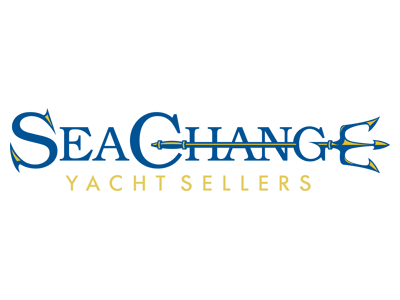
Owner/Broker
Sea change yacht sellers, llc.
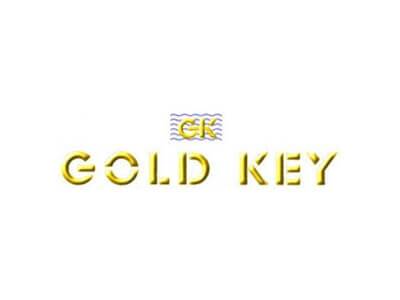
Pat Burchard
Gold key yachts of florida.
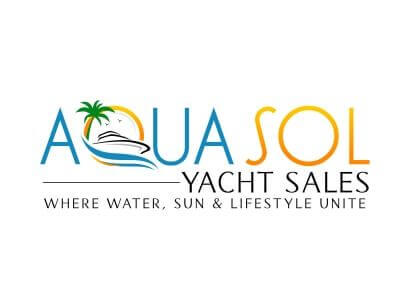
Bonnie Edson
Aqua sol yacht sales.

Robert Stotler
Broker/principle, stotler yachts.

Michael Myers
Boston yacht sales.
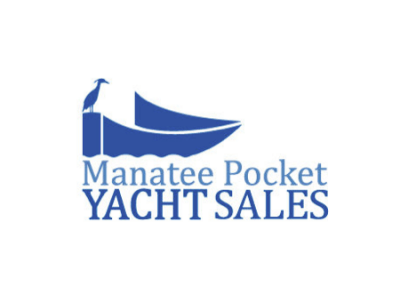
Tom Whittington
Manatee pocket yacht sales.
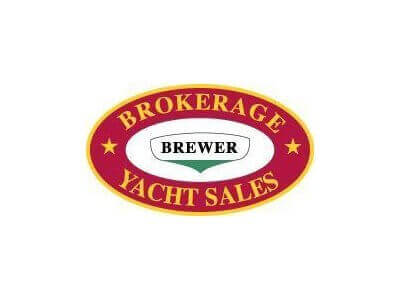
Dave Pugsley
Vice president and general manager, brewer yacht sales.
Phone: (954) 361-1322
© 2024 YachtCloser | All Rights Reserved. | Do Not Sell My Personal Information
Home Request a Demo Contact Us Privacy Policy Terms of Use
Stay connected:
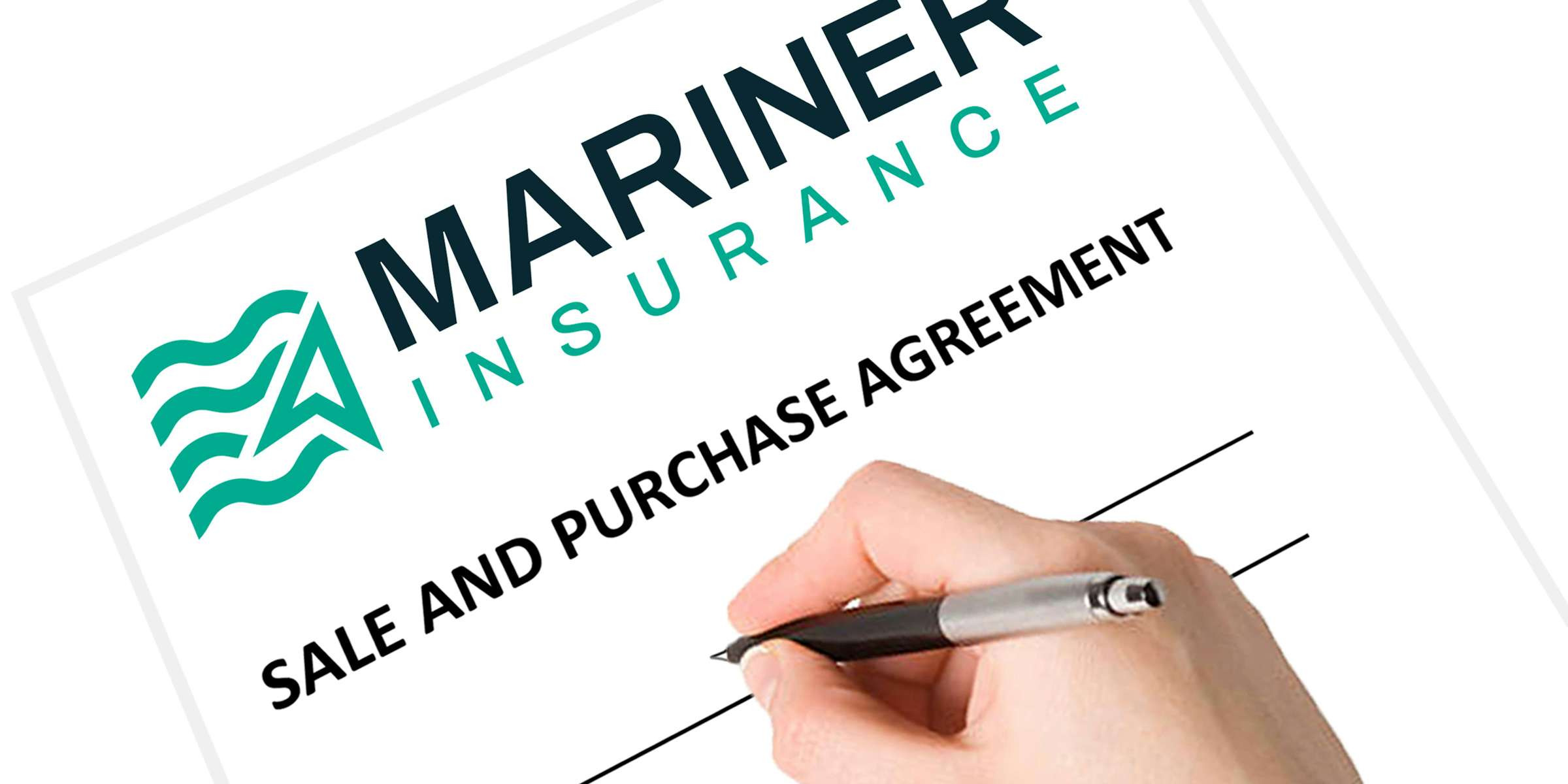
Buying a boat with a Sale and Purchase Agreement
Whether you are thinking to buy or sell a boat, you will have to know and understand some of the key points to get an agreement done with the other party. No matter what the deal size, you want to ensure everyone is on the same page.
To guide you in drafting your own Sale and Purchase Agreement, we have listed below the most important areas you should include on the document. We also have produced a sample document that you may consider using.
Let’s just cover a few of the basics.
First, if the transaction is really big to you, it may then be large enough to necessitate getting a lawyer involved. This is because a lot of negotiations take place during and after the drafting of the agreement. The agreement is where many of the most important decisions are made, including pricing, payment (as in, how payment be made?), etc.
The Basics: Obviously, the agreement will list things such as the parties involved (Purchaser, Vendor or legal representatives), the price, date for completion of sale, the location, etc. In other words, if there is any place where formalities are strictly followed, it’s a purchase agreement.
Purchase Price: Indicates the agreed amount the boat is sold for.
Payment: Payment is often more complicated than just instant cash reimbursement. It often includes a plan in which the payment is going to be made at intervals in the future.
Remedies on Default: In the event that (a) Vendor defaults or fails to perform any of the conditions or obligations of Vendor under the Agreement, or (b) the terms and conditions of the Agreement have been satisfied by Vendor, and Purchaser refuses or is unable to close on the Agreement within the time limits set forth, (each, an Event of Default), then in such event, the non-defaulting party’s sole remedy shall be entitled to declare the Agreement terminated and, upon such termination, the parties shall have no further rights or obligations with respect to the Agreement.
Ownership and Undertaking: This section states that the vessel is solely owned by the Vendor and full inventory of equipment and specifications attached will be passed to the Purchaser on settlement free from all debts, claims, liens and encumbrances of any kind whatsoever.
Risk: It is agreed by the parties that the risk of loss, damage or destruction of the vessel and equipment shall be borne by the Vendor until the vessel is delivered to the Purchaser. Vendor shall continue to insure the vessel until delivery to the Purchaser.
We are hoping that this helps you in buying or selling your vessel. Please note that this guide is provided for general information purposes only. We have also produced a sample agreement that may assist you in buying or selling a boat. It is similar to one that some Mariner staff have used ourselves. Remember though, we are not lawyers, so any legal advice is best gathered from a real lawyer, and that’s certainly not us!
To get a copy of our sample Sale and Purchase Document, click here
Looking for the right cover on the water in New Zealand in 2024?
No matter what your plans are on the water in 2024, Mariner Insurance is here to support you. We have been offering Kiwis specialist marine insurance in New Zealand for over a decade with cover for all types of boats and watercraft. Just talk to us about what you’re doing on the water, and we can tailor one of our insurance policies to fit.

COMMENTS
Certificate of Documentation, the lawful right to sell the boat, and will execute and deliver all necessary documents for the transfer of ownership to the Purchaser. ADDITIONAL PROVISIONS (a) This sale is contingent on the Purchaser's ability to obtain, if desired, financing, insurance,
Agreement Buyer agrees to purchase and Seller agrees to sell, all right, title and interest to the Vessel on the terms and conditions as set forth herein (the "Agreement). Capitalized words herein refer to the items in the chart above unless otherwise defined herein. Listing Broker and Selling Broker shall be referred to herein as "Brokers.".
When purchasing a yacht, it's best to make a formal offer in writing to the yacht owner. Plus, it's customary to accompany the offer with a good-faith deposit of 10% of the purchase price. It's also standard practice for it to be held in a separate escrow account managed by a neutral third party. Buyer shall deposit $ (Insert Deposit ...
1. Location Of Sale. (1) Bill Of Sale Effective Date. The date when this bill of sale formally transfers ownership of the boat from the Seller to the Buyer must be documented. Generally, this will be the same calendar date as the latest signature provided by the Participants of this record. (2) County And State Of Sale.
A boat bill of sale (also called a boat purchase agreement) is a document used to detail the terms of a transaction between a private seller and buyer. It's a contract specific to a boat sale, and can be used for a powered or unpowered boat as long as it is not also a U.S. Coast Guard documented vessel registered by the U.S. government rather ...
The boat bill of sale is a form that documents the sales transaction of a boat. It formally transfers ownership of the craft from one person to another. Sometimes called a boat purchase agreement, this document formalizes and details the terms of the transaction. It works like other forms of bills of sale.
YACHT PURCHASE & SALE AGREEMENT 3 g. Anyone acting in concert with or on behalf of any of the above persons. Buyer shall also represent at closing: a. Buyer warrants that he/she is not: (a) an employee of the USDOJ; (b) an employee of any Federal, State, or Local Governmental Agency which participated in investigations that led to the ...
Step 2 - Fill in the Boat, Motor, and Trailer Details. Fill out the boat details, including year, make, model, HIN (hull identification number), dimensions, etc. You can usually find your boat's hull ID number on the right side of the transom (rear of the boat). Include outboard motor information like serial number, model, and horsepower ...
YACHT PURCHASE AND SALE AGREEMENT 3 of 4 DATE: 90 9. BUYER'S REPRESENTATIONS: The BUYER warrants and/or agrees as follows: 91 A. That he has full power and legal authority to execute and perform this Agreement and to obtain, prior to 92 closing, if required, the permission of any authority to buy the YACHT, 93 B. To deliver the following at ...
A boat purchase agreement is a legally binding contract between two parties that establishes the terms and conditions governing the sale and purchase of a boat. This agreement is imperative to ensure a smooth and secure transaction for both parties involved in the boat sale. Let us know about the important aspects of the agreement below.
YACHT PURCHASE & SALE AGREEMENT 3 The enforcement, interpretation, and construction of this Agreement, and all matters relating hereto, will be governed by United States federal law, and in the event that United States federal law is silent or inapplicable, and as federal law permits, the laws of the State of Florida will apply, without giving ...
This includes the cost of the boat, the down payment if necessary, and the time frame to complete payments. A boat sale agreement must also include the seller's payment account details. The total purchase price for the Boat ("Boat") shall be the amount of (Insert Numerical Amount) (Insert Written Amount). The Parties agree that the purchase ...
A boat sale agreement is a legal document that transfers ownership of a boat from one person to another. The agreement typically includes the boat's specifications, sales price, payment terms, delivery date, and warranties. It is important to read the agreement carefully before signing to understand the terms and conditions of the sale.
A boat purchase agreement is a legally binding document that outlines the terms and conditions of a boat transaction between a seller and a buyer. Whether you're buying a new or used boat, this agreement plays a crucial role in protecting the rights and interests of both parties involved. This article takes you through the essential elements ...
ExhibitA-IncludedEquipment&Features 1Description: 2007Tidewater216Adventure1: NLPTC236B707 ThisexhibitisherebymadepartofthePurchase&SaleAgreement#NO-36 ...
Pro-Forms Generator. As a major benefit of membership, YBAA members are invited to use the association's standardized, copyrighted contractual forms, for both U.S. and Canadian transactions. Each Form is designed as an interactive PDF for ease of use. When properly used, the forms help to clarify the terms and agreements between seller/broker ...
Of all the terms and topics in a yacht agreement this is the most important to understand. A buyer's right to walk away or cancel the sale prior to this point is fairly indisputable. The ACCEPTANCE DATE means that by the date indicated the buyer will survey/sea trial the vessel and give the seller one of three typical signed agreements.
Object of sale Boat name Manufacturer / Shipyard Model / Type Construction N° / Hull ID N° Sail N° Build date Length Width Depth Engine manufacturer / Type Power (hp/kW) Engine number(s) Engine hours The following documents are an integral part of the contract and are enclosed: Equipment list CE Certi,cate of conformity Original invoice (VAT ...
RYA members can access the online RYA Sale and Purchase Pack, which includes a Sale and Purchase Agreement template with a step-by-step guide to buying and selling boats. Practicalities We also recommend buyers have a survey carried out on a boat prior to finally agreeing the purchase, especially if the boat is second-hand and being sold privately.
YachtCloser provides a simple and turn key approach to managing all the forms and contracts needed to operate your boat and yacht sales business. YachtCloser comes pre-loaded with over 100 different forms and contracts ready for you to start selling boats. In addition to the standard YachtCloser forms, we've also partnered with the top broker ...
The Basics: Obviously, the agreement will list things such as the parties involved (Purchaser, Vendor or legal representatives), the price, date for completion of sale, the location, etc. In other words, if there is any place where formalities are strictly followed, it's a purchase agreement. Purchase Price: Indicates the agreed amount the ...
Use for sales processing of our purchase agreement for used boats. Our Boat Sales Contract is limited to one page, keeping it as simple as possible. Nevertheless, all important points of the contract are included. This purchase agreement can be used as a template for power boats, sailboats or inflatables. Sales Contract english (PDF / en)
Star Entertainment's move to offload a luxury yacht once used for high-rollers has become embroiled in a legal dispute, with a wealthy Cypriot businessman suing the embattled casino group for ...